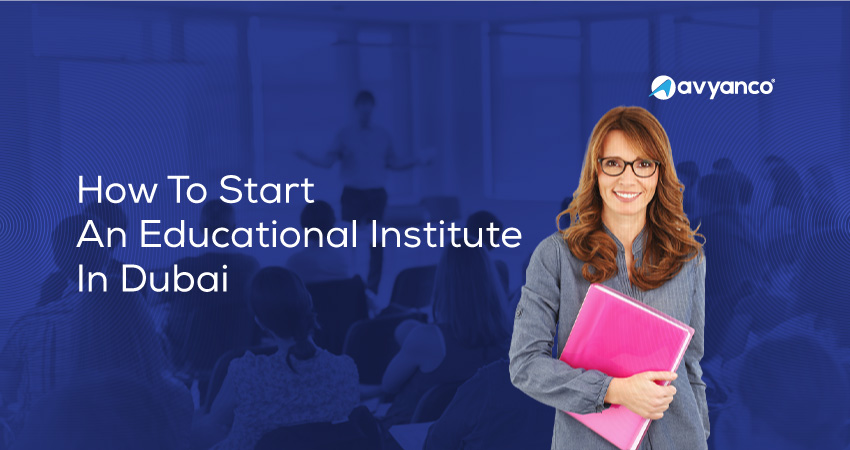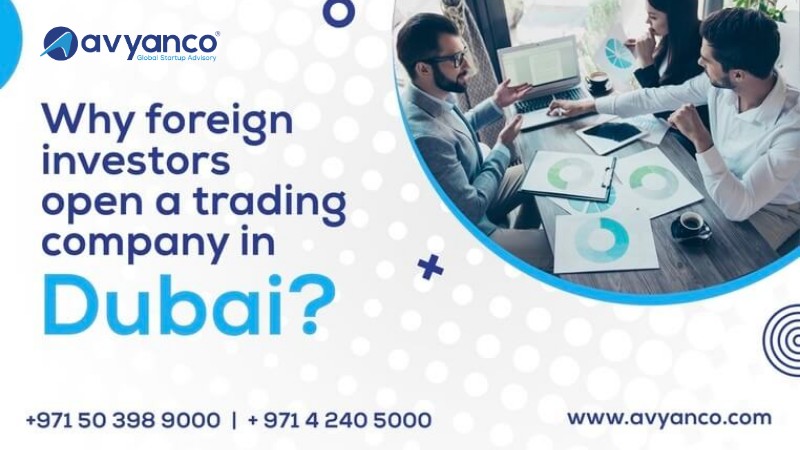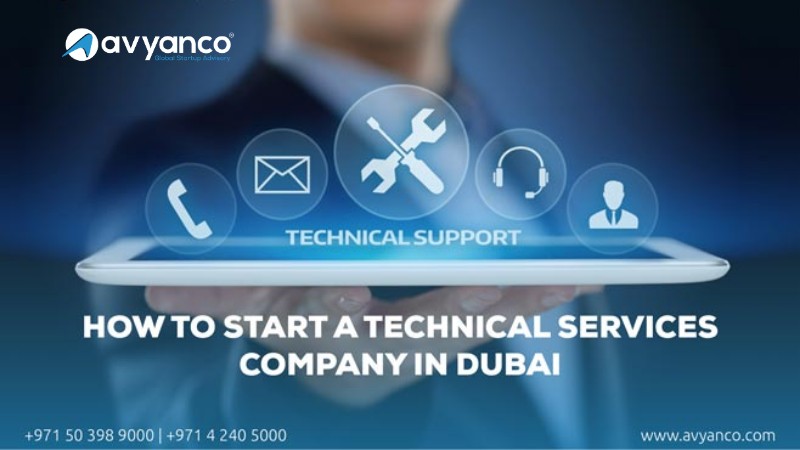Starting an educational institute in Dubai can be quite difficult, especially when you are not familiar with the process and legal requirements. You also need a basic understanding of the KHDA and the type of education institute you want to establish.
For greater benefits, you must know which Jurisdiction either Mainland or Free Zone would be ideal for you. Hence, we have created this guide to give you all the details and resources so you know how to start an educational institute in Dubai.
The educational sector in Dubai has witnessed massive growth lately. The city is committed to providing world-class educational opportunities to everyone. The market size of Dubai’s educational sector is booming and is expected to grow at a CAGR of 9.46% between 2023 and 2028.
An educational institute in Dubai is a lucrative investment opportunity for two reasons:
- its thriving knowledge-based economy
- diverse population
There are multiple other benefits, such as full ownership, location flexibility, collaboration opportunities with renowned international institutions, tax benefits, access to a vast market, cultural diversity, modern infrastructure, and an exceptional quality of life.
However, you must understand the key steps involved in the process to avoid any issues later.
Let’s start by understanding the KHDA and building the foundation.
Understanding KHDA
The Knowledge and Human Development Authority (KHDA) is the governing body responsible for overseeing and regulating the education sector in Dubai. KHDA plays a pivotal role in ensuring the quality and education standards provided in Dubai.
Key specifications related to KHDA include:
- Licensing and regulating educational institutions
- Setting guidelines, teaching methods, facilities, policies, and standards for curriculum
- Student welfare
- Comprehensive school inspections and rate the institution based on performance
- Promoting transparency and accountability within the education sector
- Supervise higher education institutions and academic cities to ensure seamless education for everyone
Types of Educational Institutes that can be opened in Dubai
Dubai offers diverse educational opportunities to everyone. This allows entrepreneurs to establish different institutes and cater to different market segments:
Early Childhood Centers (ECCs)
Nurseries, preschools, and daycare centres fall into the category of ECCs. There are 249 early childhood centres in Dubai, with 23,779 students enrolled. To establish an ECC, you must obtain the required approvals from KHDA. To continue operations, you must follow their guidelines for early childhood education.
KG-12/13 Schools
Primary and secondary schools offering general education fall into this category. Currently, there are 216 private schools in Dubai that provide education to 326,001 students. To run a private school in Dubai, you need a licence from the KHDA and must adhere to their standards for curriculum and facilities. Teacher qualifications are mandatory for KG-12/13 schools.
Higher Education Institutions
Universities, colleges, and vocational training institutes fall into this category. Dubai is home to more than 65 colleges, with a student population of 30,032. You need the necessary licences from the KHDA. Institutions must also comply with academic regulations and quality standards.
Specialised Training Centers
This category comprises institutes offering professional development, skill enhancement, and corporate training programs. As of now, 1,167 such institutes can offer 70,504 courses as approved by the KHDA. Licencing requirements depend on the nature of the training offered by the institute.
How to open an Educational Institute in Dubai
To open an educational institute in Dubai, you must follow a well-defined application process. Here are the key steps involved:
Determine the Type of Education and Location
The first step is determining the type of institute you want to operate. You must also highlight the specific educational activities you wish to offer. Next, you must decide on an appropriate location. It could be on the mainland of Dubai or in a dedicated free zone.
Complete the KHDA Application
This is the most crucial part of opening an educational institution in Dubai. KHDA needs comprehensive details about your educational institute before issuing the licence.
The application must contain the following information:
Organisational Overview: Provide a clear introduction to your institute, highlighting its mission, vision, and the value proposition it offers to prospective students
Market Analysis: Justifying the demand for the training programs you plan to offer by presenting relevant market research data
Faculty Credentials: Include information about the qualifications, experience, and expertise of your teaching staff and instructors
Training Services: Specify the various training programs, courses, and educational services your institute will offer, aligning with the KHDA’s classification system
Supplementary Services: Outline any additional services or activities, beyond training, that your institute plans to provide
Courses Offered: Submit a comprehensive list of all the training courses, programs, and curricula you plan to offer, with any additional documentation required by the KHDA
Certification Offered: Describe the different certifications, diplomas, or degrees that students can earn after successfully completing their training program
Marketing and Outreach: Explain your marketing strategies, promotional campaigns, and outreach initiatives to elevate awareness about your institute and attract prospective students.
Student Recruitment: Describe the processes and methods you will employ to identify, assess, and enrol students into your educational programs
Regulatory Compliance: Outline the measures you will take to ensure compliance with all applicable regulations, guidelines, and quality standards set forth by the KHDA for educational institutions
Ownership Structure: Provide details about the individuals or entities holding stakes in your educational institute
Infrastructure and Resources: Provide details about the facilities, classrooms, equipment, and other resources you have or intend to get for effective training
Gather Required Documents
You must provide the following documents to obtain the respective licence:
- Document of name reservation
- A registration plan
- Coloured passport copies of shareholders and director/manager
- Notarised signatures of each shareholder and director/manager
- CVs of director/manager
- Qualification certificates of the manager
- Undertakings from the manager who will be working full-time at the institute as per the agreed working hours
- List of courses
- For a corporate shareholder, including a board resolution from the parent company announcing the set up of the institute in Dubai or a certificate of good standing
- Any other relevant paperwork required by KHDA
Obtain Approvals and Pay Fees
Submit your application online through the KHDA e-services portal. Next, pay the fees and wait for final approval. The timeframe for approval may alter depending on your institute’s size and complexity.
Secure Additional Licenses and Permits
Depending on your specific educational offerings, you may need to obtain additional licences, such as
- Trade licenses
- Tenancy contracts, and
- Environmental health and safety certificates
- Municipality planning section approved
Suitable Jurisdiction to Open Educational Institute
You can start your educational institute in any jurisdiction, let’s explore both the Mainland and Freezone options in more detail.
Dubai Mainland
Investors can open education institutes in Dubai Mainland, which allows them to take space anywhere in Dubai other than the Freezone area. Also, it comes with 100% foreign ownership.
List of Free Zones Suitable to Open an Education Institute in Dubai
Dubai has several dedicated free zones to meet the needs of educational institutions. Here are some popular choices:
Dubai Knowledge Park
Formerly known as Dubai Knowledge Village, Dubai Knowledge Park was established in 2003.
It is a free zone focused on:
- Human resource management
- Recruitment
- Consultancy
- Executive search
- Vocational training
- Professional development
It aims to develop Dubai’s talent pool by focusing on both hard and soft skills.
Dubai Academic City
Dubai Academic City was established in 2006. It is a hub for educational institutions, as branches of renowned universities from around the world can be found here. It is dedicated to positioning Dubai as a global education destination.
Dubai Biotechnology & Research Park (DuBiotech)
DuBiotech was founded in 2005. It is a specialised free zone catering to biotechnology and pharmaceutical companies. So far, it has attracted many global players in these industries. The free zone also fosters research and development activities.
Dubai International Academic City
Dubai International Academic City is completely dedicated to higher learning. It hosts top global universities and attracts students from around the world. It boosts Dubai’s global education status and constantly develops the UAE’s higher education sector.
Benefits of setting up an educational institute in Dubai
Setting up an educational institute in Dubai offers numerous advantages, including:
Full Ownership: Entrepreneurs can enjoy complete ownership control without local partners.
Location Flexibility: The option to choose the perfect location within the city or in a free zone.
Collaboration Opportunities: Dubai’s diverse educational landscape allows partnerships with international institutions.
Tax Benefits: Educational institutes are exempt from corporate taxes, saving costs.
Market Access: With a mainland licence, institutes can tap into a wide market, including corporations and government bodies.
Cultural Diversity: Dubai’s multicultural environment attracts a diverse student base.
How Avyanco Business Setup can help establish your educational institute in Dubai
Starting an educational institute in Dubai can be a profitable venture. However, you might struggle with the legal procedure and regulatory requirements. Avyanco, with its team of experienced consultants, can guide you through every step of the process.
We can assist you with:
- Selecting the most suitable location
- Choosing your educational offerings
- Completing and submitting the application
- Obtaining necessary approvals
Our expert consultants in Dubai ensure you remain compliant with KHDA. We double-check your documents to maximise your chances of a successful application.
Contact Avyanco today for expert guidance on establishing an educational institution in Dubai.
FAQs
Yes, you need to obtain a teaching licence from the KHDA to teach in Dubai. This rule applies to all educational institutions in the emirate.
To obtain an educational professional licence in the UAE, you must meet the qualifications set by the relevant authorities, such as KHDA in Dubai. This typically involves:
– having a bachelor’s degree or higher in the relevant field
– necessary teaching certifications and experience.
KHDA approval refers to the authorisation and licensing granted by the Knowledge and Human Development Authority (KHDA) to educational institutions operating in Dubai. It is a mandatory requirement to ensure compliance with quality standards and regulations.
The timeframe for obtaining KHDA approval is subject to the size and complexity of the educational institute. Smaller operations may receive approval within a few days. However, larger institutes may experience a longer waiting period.
To get a KHDA certificate, you must apply through the KHDA e-services portal. The application should include details about your organisation, staff qualifications, curriculum, facilities, and any other required documentation.
Yes, the UAE has made it mandatory for tutors to obtain a permit from the relevant authorities. This measure aims to address illegal and unregulated practices in recruiting private tutors.









